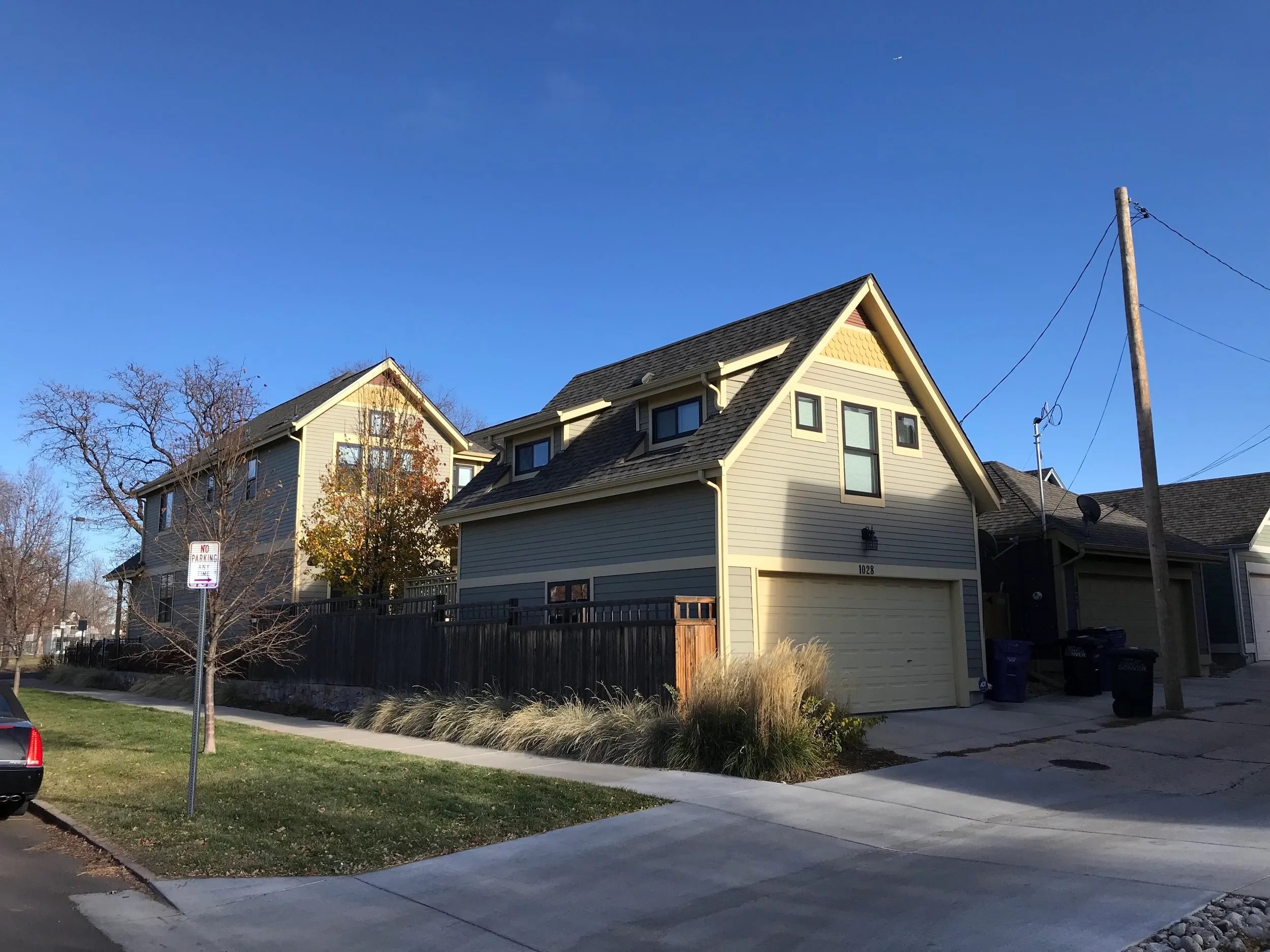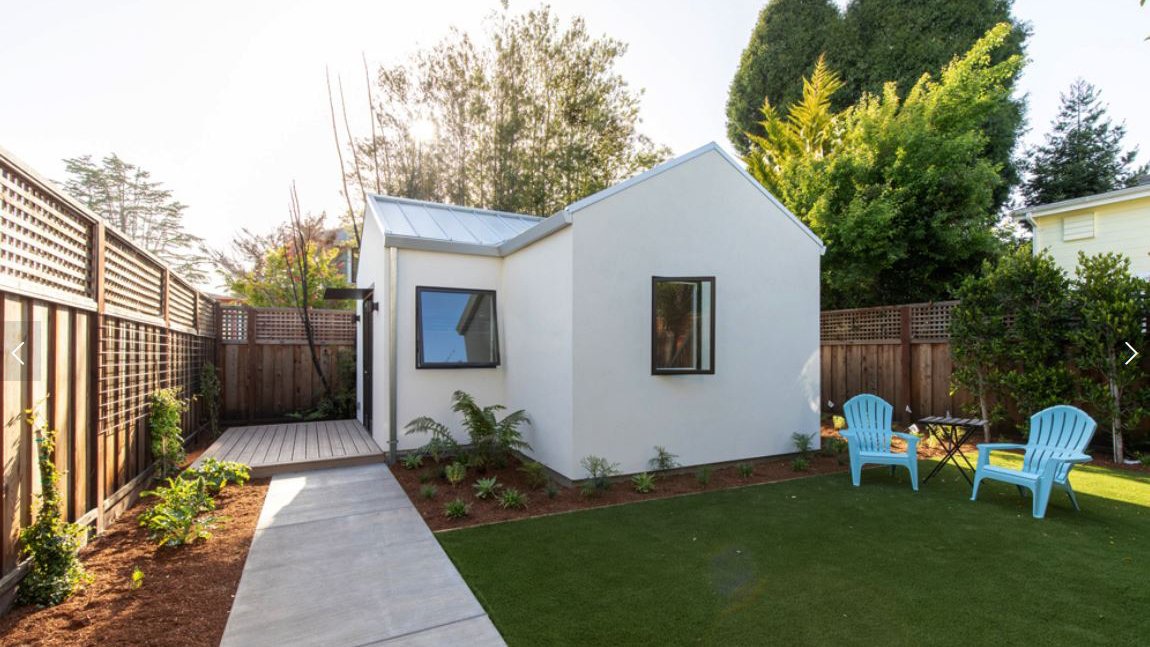Everything You Need to Know About
Building an Accessory Dwelling Unit
We all know that Denver is under a crunch when it comes to homes for sale. And there are a lot of great reasons to live in Denver. Jobs, economy, lifestyle, not to mention the art, food, and music scene... you name it, we got it. With inventory way down and demand way up, creative solutions to the housing market are starting to gain traction.
The city of Denver is aware that there are not enough housing options to choose from with the current and estimated population growth in the coming years.
So how does a modern city create more housing opportunities under constrained development space?
By giving more Denver homeowners the ability to build accessory dwelling units (ADUs).
Now, the city of Denver is in the early stages when it comes to how they are hoping to entice homeowners around the city to build ADUs. But progress has been made. In fact, in the last few years, more neighborhoods than ever have been rezoned to allow for ADUs on homeowner property; around 25% of Denver currently allows for ADUs.
But is it worth it?
For a very populated city with plans to grow, diversify, and evolve... yes. For homeowners who now have this option to build on their property? It's worth exploring. Let's dive into the history, requirements, recent zoning changes, and what the next steps would be if you wanted to go down the ADU route.
History of the ADU in Denver
If you think ADUs are a new-age concept, think again.
Accessory dwelling units have long been part of the fabric of Denver, and many other cities around the U.S. Pictured above is the Grant Street Mansion, built-in 1892 with an adjacent carriage house. Much like the design of ADUs today, the carriage home provided living quarters above an area for storing a horse-drawn carriage. Historic carriage homes still exist in many older Denver neighborhoods, including Baker, Capitol Hill, Curtis Park, City Park West, Congress Park, Cole, Whittier, Speer, Country Club, West Washington Park, and Platt Park. (Source)
Why Build an ADU?
It can be purposed as a long-term or short-term rental, in the sense that you have a full-time tenant, or offer the space to visitors on one of the popular vacation rental websites like VRBO or Airbnb.
The classic use is to set the living space up as an independent, ancillary “apartment for members of the family, aging parents, or young “fresh on their feet” adults.
Other approaches include when the primary homeowners travel frequently, or want to simplify so they occupy the ADU as their primary home, then rent out the property’s primary home to full-time tenants. Source
Building an ADU isn't just about creating an investment in your property, it's also about your lifestyle and what you see in your future for years to come.
Zoning Requirements of Building an ADU in Denver
The 3 Components of ADU Zoning
1. Zone Lot District:Your property must be in a zone that allows ADUs.
2.Lot Coverage:The zone in your neighborhood determines the size and shape of the ADU allowed.
3.Lot Size: Your lot size must be big enough to handle a secondary or newly attached structure to the primary residence
Learn more about zoning here or for some light reading, here's Denver's 1300 page zoning document.
Plus Some Ground Rules from the City...
Your ADU has to have its own address.
If you’re in a single-unit zone district (read: you live in a stand-alone house), you (the owner) have to live on-site, either in the primary residence or in the ADU.
Whenever feasible, the dwelling’s utilities have to be shared with the primary house.
You’re going to pay almost all of the same permitting fees as you would if you were building a primary residence. (Bummer, we know.)
In single-unit zone districts, you can’t sell your ADU separately from the main property (no, not even to Granny).
You may not put the “I” in DIY and build your own ADU—unless you’re a licensed general contractor. Only GCs are allowed to construct these units in Denver.
List of all Zoned Neighborhoods of Denver (as of February 2022)
Berkeley
Sunnyside
West Colfax
Barnum
Whittier
Cole
Curtis Park
Clayton
Platte Park
Overland
Baker
Capitol Hill
Athmar Park
Lincoln Park
Westwood
Sloan's Lake
Highlands
Potter Highlands
Next Steps to Building an ADU
The first thing is to connect with your Realtor (that’s us!) and a trusted architect familiar with ADU construction. I will research your property zoning to see if an ADU is approved in your area and pull data on the homes in your neighborhood with an ADU (if applicable) to see if it is a positive financial investment for you. Connecting with an architect will help you determine your zoning requirements, confirm zoning is compliant, as well as draw up plans for your ADU following the city's rules and regulations.












